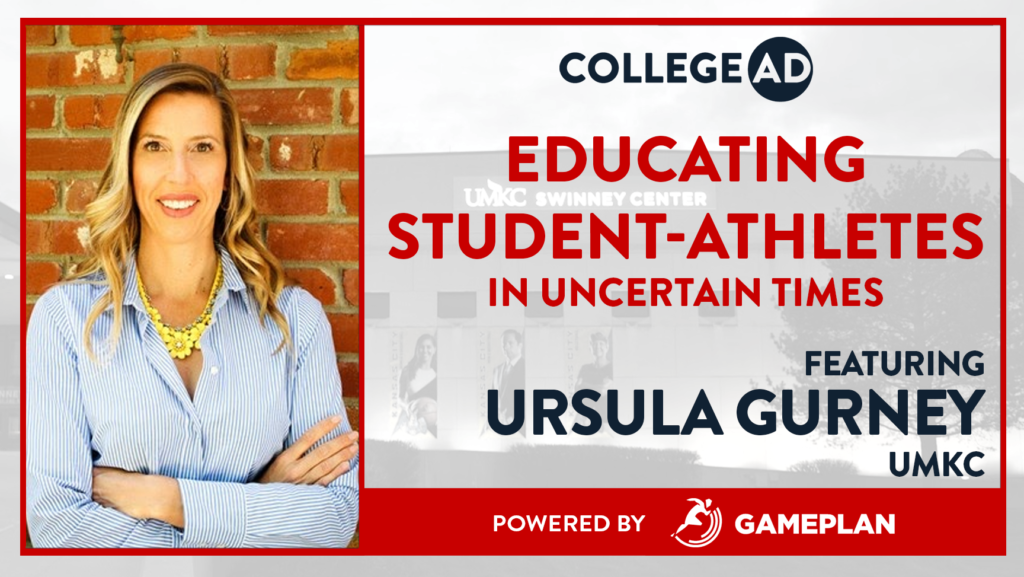 “Being a student-athlete helped prepare me as an athletics administrator. That experience has helped me in many ways, it taught me time management skills and enforced how to work with a sense of urgency. It taught me to be coachable. I really think that experience as a Student-Athlete has translated into me learning how to listen, listening to the people around me, and understanding what it takes to help them as a department.” -Ursula Gurney
“Being a student-athlete helped prepare me as an athletics administrator. That experience has helped me in many ways, it taught me time management skills and enforced how to work with a sense of urgency. It taught me to be coachable. I really think that experience as a Student-Athlete has translated into me learning how to listen, listening to the people around me, and understanding what it takes to help them as a department.” -Ursula Gurney
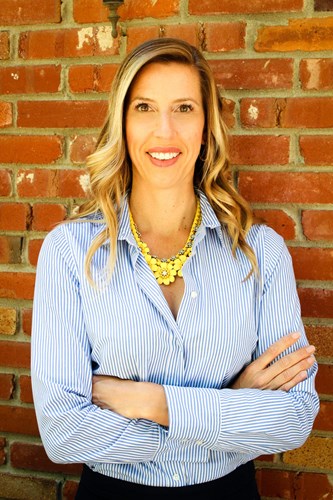 Ursula Gurney was named the Deputy Director of Athletics and Senior Woman Administrator the Missouri-Kansas City Roos in May 2017. Since that time, she’s leaned on her experience as a student-athlete to help guide her department.
Ursula Gurney was named the Deputy Director of Athletics and Senior Woman Administrator the Missouri-Kansas City Roos in May 2017. Since that time, she’s leaned on her experience as a student-athlete to help guide her department.
“It also really told me to be open to other people’s perspectives and find the intersection of where everyone needs are to move forward as a department.”
Gurney oversees academics, compliance, sports medicine, sports performance, and is the primary liaison with UMKC’s Offices of Admissions, Registration and Records, and Residential Life. She says every facet of her role in the athletic department is influenced by the strong culture of Kansas City.
“The culture and tone of our department is obviously set by the athletic director in concert with the chancellor. In our department, culture needs to provide our student-athletes the genuine perspective that their time with the department has true value. We have a culture of inclusiveness, one that fosters a family environment, ensuring that we act for a place of integrity, and one that values academics. The culture really defines how we act on a daily basis, what kind of services we want to provide our student-athletes and how they will grow into their role after they leave us in four or five years.”
Gurney explains that some of their most important student-athlete services revolve around academic support where they not only provide assistance but meaningful, critical personal skills instruction.
“We want our student-athletes to be successful in the classroom, it’s important to help them learn critical thinking. We also want to help them navigate their path toward graduation and find it a meaningful degree. Our academic support is significant.”
She says that type of academic support is also student development. Ursula Gurney explains, one of their main goals is to help develop a well-rounded student-athlete.
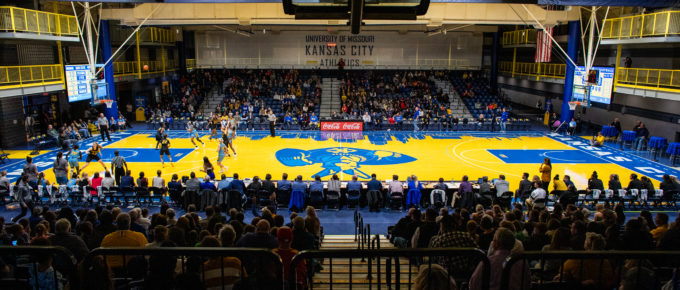 “We want them to also focus on life after college. We look at things like leadership development, career development, focusing on things like activism, which has become a big topic among college athletics. So how do we prepare them for activism? For us, it’s engaging in critically thinking about the landscape of our nation and how do you think critically and engage in a dialogue? That means giving them opportunities to engage in a dialogue right now.”
“We want them to also focus on life after college. We look at things like leadership development, career development, focusing on things like activism, which has become a big topic among college athletics. So how do we prepare them for activism? For us, it’s engaging in critically thinking about the landscape of our nation and how do you think critically and engage in a dialogue? That means giving them opportunities to engage in a dialogue right now.”
She says they put an emphasis on preparing their student-athletes for when sport comes to an end and understanding their next steps. Ursula Gurney says that mental health is also an important topic within their athletic department, she says sports medicine and academics work hand in hand to provide help and awareness of mental health.
“Offering help in mental health areas is important, but we also want to give them tools to work on their mental health while they are with us, and even after they leave. Teaching them how to be resilient, teaching them how to be proactive with their mental health. We have to give our student-athletes these tools for mental health spaces to prepare them for life after they leave Kansas City. It really starts from the top down, our athletic director, Dr. Brandon Martin, believes in the mental health component and as a result, we have buy-in not only from our coaches but also the rest of the administrators on our team.”
She explains that they are constantly working towards synergy within the department so all of the moving parts can work together to create an outstanding student-athlete experience.
“It’s really fantastic to see when you have leadership that supports the growth of the student-athletes. That allows our entire team to come together, under that leadership, to offer our students a well-rounded student-athlete experience.”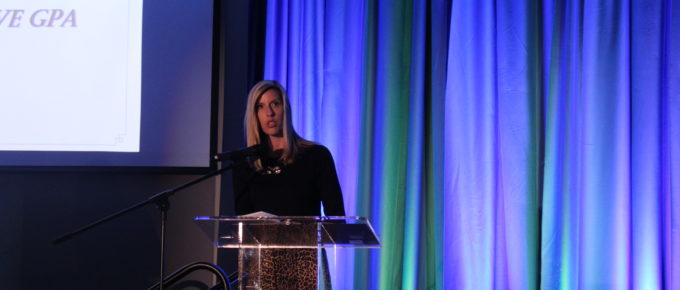 Gurney says everyone in the department can see the value of focusing on the student-athlete experience; when you have the ability to demonstrate that the student-athlete experience is front and center, all parties align with your mission.
Gurney says everyone in the department can see the value of focusing on the student-athlete experience; when you have the ability to demonstrate that the student-athlete experience is front and center, all parties align with your mission.
“When members of our external team are out seeking a sponsorship, people can see what our mission is right away. People tend to support student-athletes and the student-athlete experience, wanting to lift up the students. In recruiting, when coaches are out telling the Kansas City Athletics story, it’s important that they show we’re also building strong men and women. The means it’s not just the experience that they get on the court or on the field–that the coaching staff works in conjunction with all of these different units in addition to the leadership they provide on the field.”
The human side of the equation has become a selling point for athletics, especially during the COVID crisis, explains Gurney.
“There’s nothing more human than the student-athlete experience because it’s all about lifting up and betterment. Our athletics director leads with the human story and the total student-athlete experience and it’s been that way since day one. I know he’s gotten only positive feedback from the community on our student-athlete experience and it’s really come front and center now. People want to help the student-athletes.”
Highlighting the student-athlete experience at Kansas City is not the only opportunity that’s presented itself during the pandemic. Ursula Gurney says professional development and “lifting and you rise” have also become a focal point for her and her team.
“It’s been important to provide professional development opportunities for our staff. As they grow, our department gets better. In this time of COVID, it’s been interesting. We are not going to conferences, we’re maybe not spending the time together, so we’ve had to get creative in how we continue to develop each other. Part of the way is turning to each other to learn and grow and develop. On the internal side, I lead a group twice a week, our whole internal team meets. We talk about our growth needs as individuals and as a department. We’re sharing thoughts and ideas. We are a great resource for each other.”
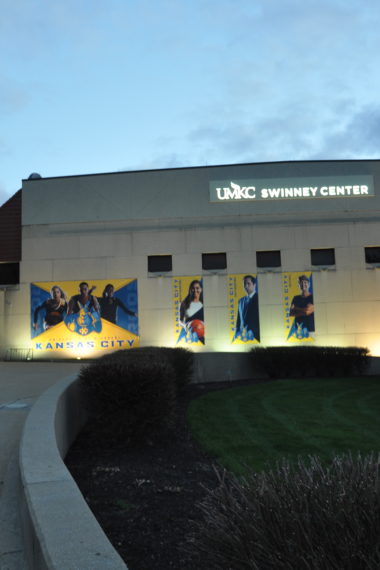 Gurney says when it comes to choosing members for her team, how they see and value the student-athlete experience is top on her list of character qualifications.
Gurney says when it comes to choosing members for her team, how they see and value the student-athlete experience is top on her list of character qualifications.
“You have to really look at their character and how they will impart their character, their morals, their compass on others. You have to gauge how they will want to engage student-athletes. At the end of the day we all work for higher education, so our goal should be to educate both on the court and in the classroom. How is that coach or staff member going to impart their education on to the student-athletes to make sure we’re here for the whole picture and not just one part of it.”
She says that the pandemic has taught her things about Kansas City that she may not have taken the time to examine beforehand.
“We can be flexible, it’s ok to be flexible, we can pivot, sometimes we pivot daily. Another thing that has really come to the center is how important communication is and that it does not hurt to over-communicate. It’s important to take the time and structure your time to communicate. It’s helped us to be more efficient, it’s helped us to be more effective. The crisis has also shown us how important our mission is and how important it is that we work for that mission as a team. It takes all of us to make that great student-athlete experience.”
